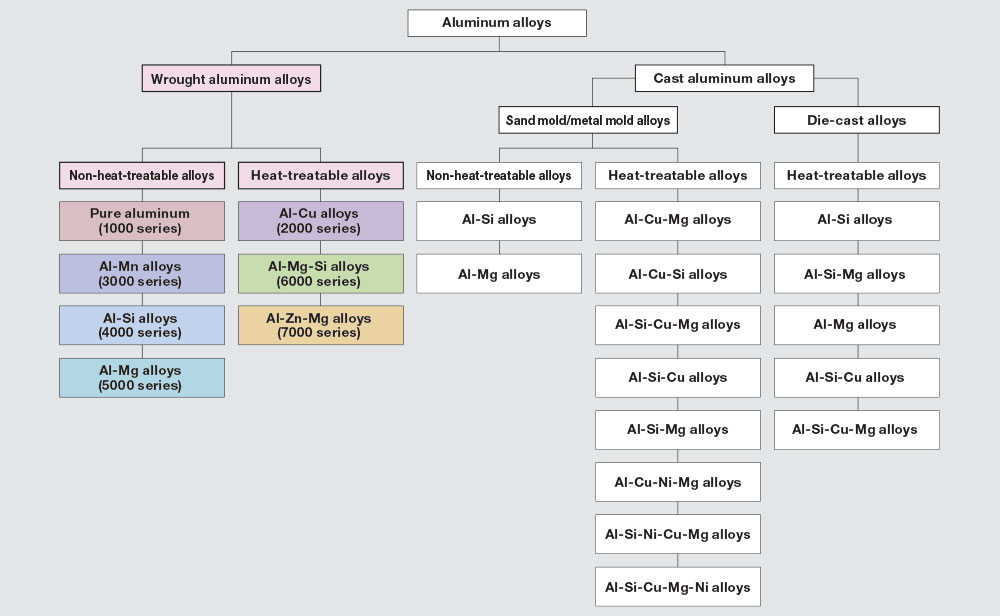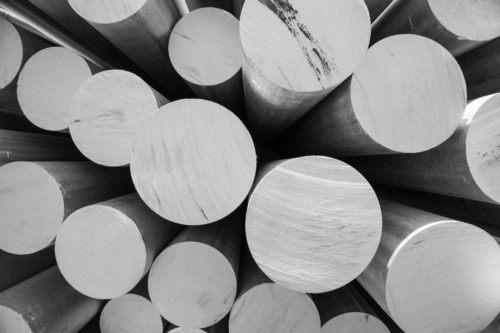Indicators on Alcast Company You Should Know
Indicators on Alcast Company You Should Know
Blog Article
The Ultimate Guide To Alcast Company
Table of Contents10 Simple Techniques For Alcast CompanyAlcast Company for BeginnersThe Best Strategy To Use For Alcast CompanyOur Alcast Company IdeasThe Main Principles Of Alcast Company Some Known Details About Alcast Company
The subtle difference hinges on the chemical material. Chemical Contrast of Cast Aluminum Alloys Silicon promotes castability by minimizing the alloy's melting temperature level and improving fluidity during casting. It plays an essential role in allowing detailed mold and mildews to be loaded accurately. Furthermore, silicon adds to the alloy's strength and wear resistance, making it important in applications where durability is critical, such as automotive parts and engine components.It additionally boosts the machinability of the alloy, making it less complicated to refine right into finished items. By doing this, iron adds to the total workability of light weight aluminum alloys. Copper raises electric conductivity, making it useful in electric applications. It likewise improves corrosion resistance and includes in the alloy's overall strength.
Manganese adds to the stamina of aluminum alloys and boosts workability (Aluminum Castings). It is frequently used in functioned light weight aluminum products like sheets, extrusions, and accounts. The existence of manganese aids in the alloy's formability and resistance to fracturing during fabrication procedures. Magnesium is a lightweight element that gives stamina and effect resistance to aluminum alloys.
Alcast Company Fundamentals Explained
Zinc enhances the castability of aluminum alloys and aids control the solidification process during spreading. It enhances the alloy's toughness and hardness.

The key thermal conductivity, tensile stamina, return stamina, and prolongation differ. Among the above alloys, A356 has the greatest thermal conductivity, and A380 and ADC12 have the most affordable.
Alcast Company Things To Know Before You Buy

In accuracy casting, 6063 is appropriate for applications where intricate geometries and high-quality surface area finishes are extremely important. Examples consist of telecommunication enclosures, where the alloy's remarkable formability allows for smooth and cosmetically pleasing designs while preserving architectural integrity. In the Lighting Solutions industry, precision-cast 6063 elements produce elegant and effective lights components that call for intricate shapes and good thermal performance.
The A360 shows superior elongation, making it perfect for complex and thin-walled parts. In accuracy spreading applications, A360 is well-suited for markets such as Customer Electronic Devices, Telecommunication, and Power Tools.
The Main Principles Of Alcast Company
Its special homes make A360 a beneficial choice for accuracy casting in these markets, boosting product durability and high quality. aluminum casting company. Light weight aluminum alloy 380, or A380, is an extensively made use of spreading alloy with numerous distinct features.
In precision spreading, aluminum 413 radiates in the Customer Electronic Devices and Power Devices sectors. This alloy's remarkable rust resistance makes my blog it an excellent option for outdoor applications, guaranteeing long-lasting, durable products in the mentioned industries.
Alcast Company for Dummies
When you have chosen that the light weight aluminum die casting procedure appropriates for your task, a crucial next step is determining on one of the most ideal alloy. The light weight aluminum alloy you select will substantially affect both the spreading process and the residential properties of the end product. As a result of this, you must make your decision very carefully and take an enlightened method.
Identifying the most suitable light weight aluminum alloy for your application will certainly indicate evaluating a vast range of characteristics. These comparative alloy characteristics comply with the North American Die Spreading Association's guidelines, and we've divided them into 2 categories. The initial classification addresses alloy attributes that influence the production procedure. The 2nd covers attributes impacting the residential or commercial properties of the final product.
The 2-Minute Rule for Alcast Company
The alloy you pick for die casting straight impacts a number of facets of the spreading process, like just how simple the alloy is to deal with and if it is vulnerable to casting issues. Hot splitting, also referred to as solidification cracking, is a normal die spreading flaw for light weight aluminum alloys that can cause inner or surface-level splits or cracks.
Certain aluminum alloys are much more prone to hot splitting than others, and your option should consider this. An additional usual problem found in the die spreading of light weight aluminum is pass away soldering, which is when the actors stays with the die wall surfaces and makes ejection challenging. It can harm both the actors and the die, so you should try to find alloys with high anti-soldering residential properties.
Rust resistance, which is currently a significant feature of aluminum, can differ considerably from alloy to alloy and is an important characteristic to take into consideration depending on the environmental problems your product will certainly be exposed to (Foundry). Put on resistance is an additional residential or commercial property commonly looked for in light weight aluminum items and can differentiate some alloys
Report this page